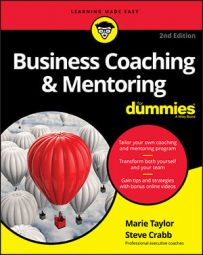The required coaching standard for internationally recognized coach accreditation is between 35 and 100 hours coaching practice plus the training requirement. Most professional business coaches who coach at a senior level have more than 500 hours of coaching in the bag and coach regularly.
| European Mentoring and Coaching Council | Association for Coaching | International Coach Federation (ICF) | |
| Membership requirements | Membership of a professional body | Hold appropriate level prior to submission of application | Completion of an entire ICF Accredited Coach Training Program or 60 hours of coach-specific training on an ICF-approved program plus 10 hours of coaching with an ICF-accredited mentor |
| Client contact hours or coaching training | 50 hours | 35+ hours | Complete the Coach Knowledge Assessment |
| Coaching experience | One year (from first practicing as mentor/coach) | 75+ hours | 100 hours (75 hours paid) |
| Number of clients | At least five clients | At least 8 clients | |
| Client feedback | Five within last 12 months (ending with submission date of application) | One client reference | |
| Continuous professional development (CPD) | 16 hours per year | CPD record since initial coach training | 40 hours every three years |
| Mentor/coach supervision | One hour per quarter | Minimum three months’ coaching supervision |
Checklist 1: Just do it:
- Contracting paperwork that sets out the financial agreement and the coaching agreement
- A clear disclaimer about any changes the client makes being his responsibility and choice
- Individual client next-of-kin details if you’re meeting offsite or contracting with an individual rather than an organization
- Clear terms and conditions regarding fees, payment, cancellation, travel, and expenses
- Insurance to cover your professional liability and public liability if you have premises
- Confidential storage for your client records and ways of protecting and destroying confidential documents
- A disclosure from the client regarding any therapy work he is engaged in or any medical conditions that may impact his work with you
- Your own system for session management, clearing the space, notes (coaching log), and review
- Sharing an open notes policy with the individual you’re coaching
- Having a coach and/or mentor or supervisor
- Most important of all, loving your clients

